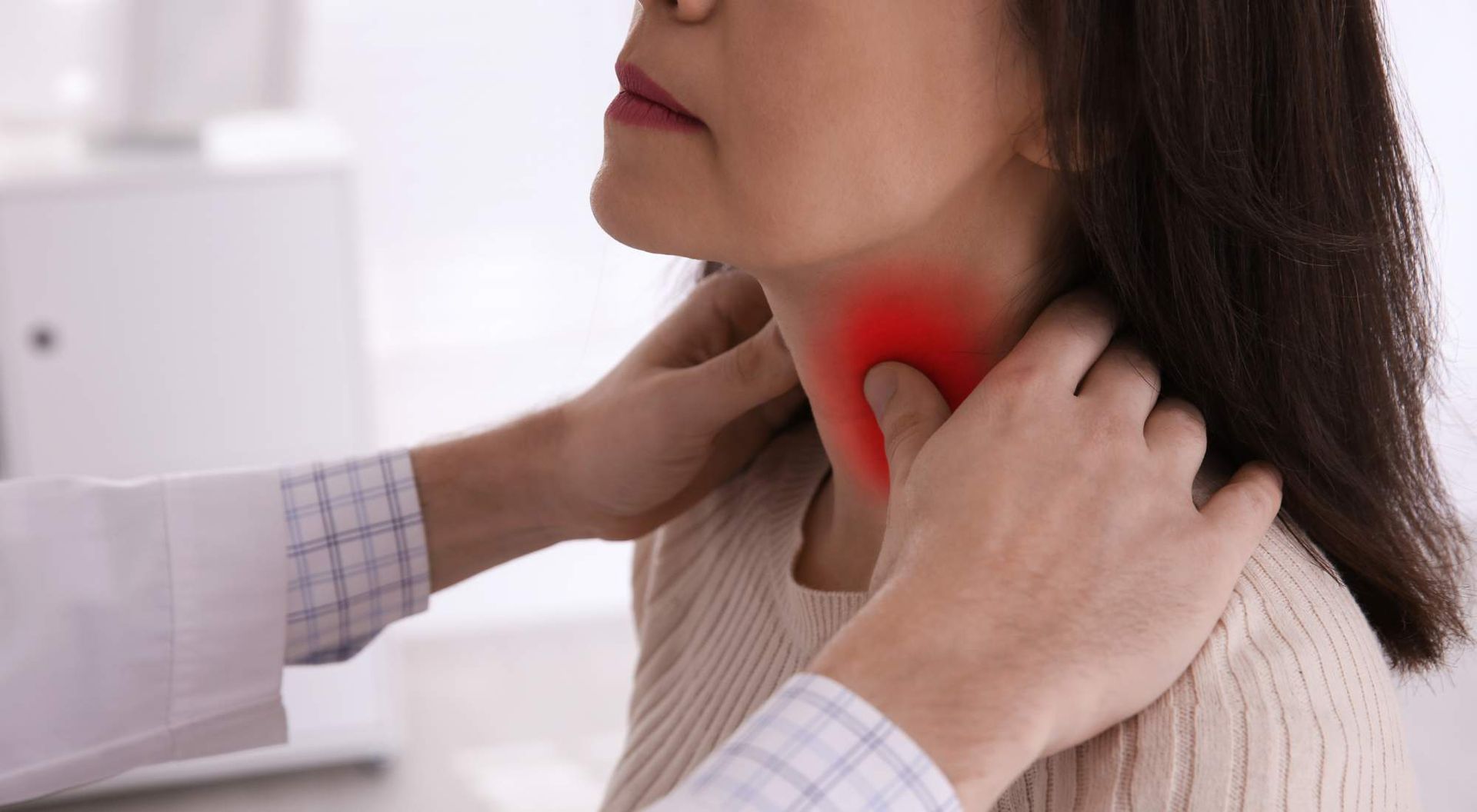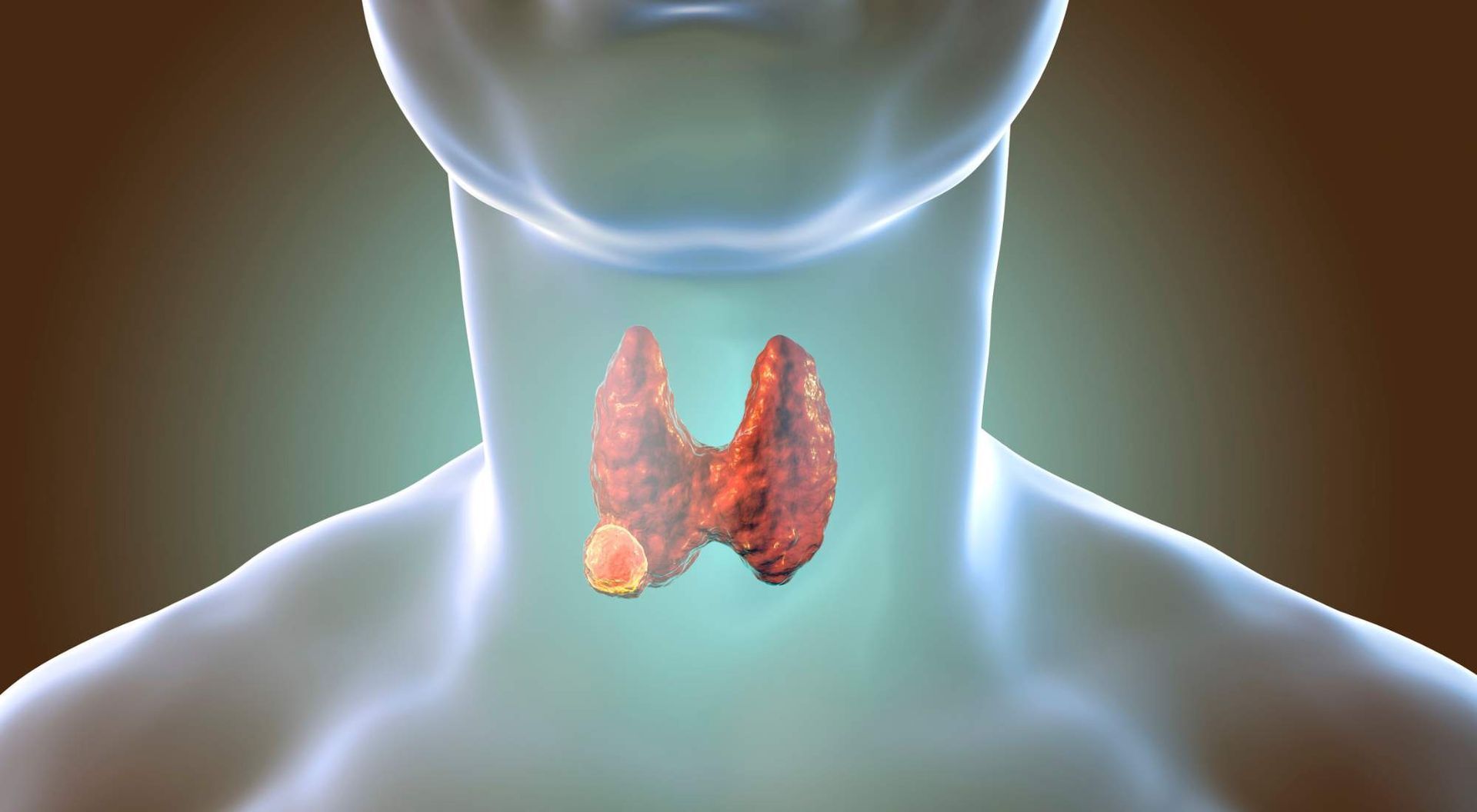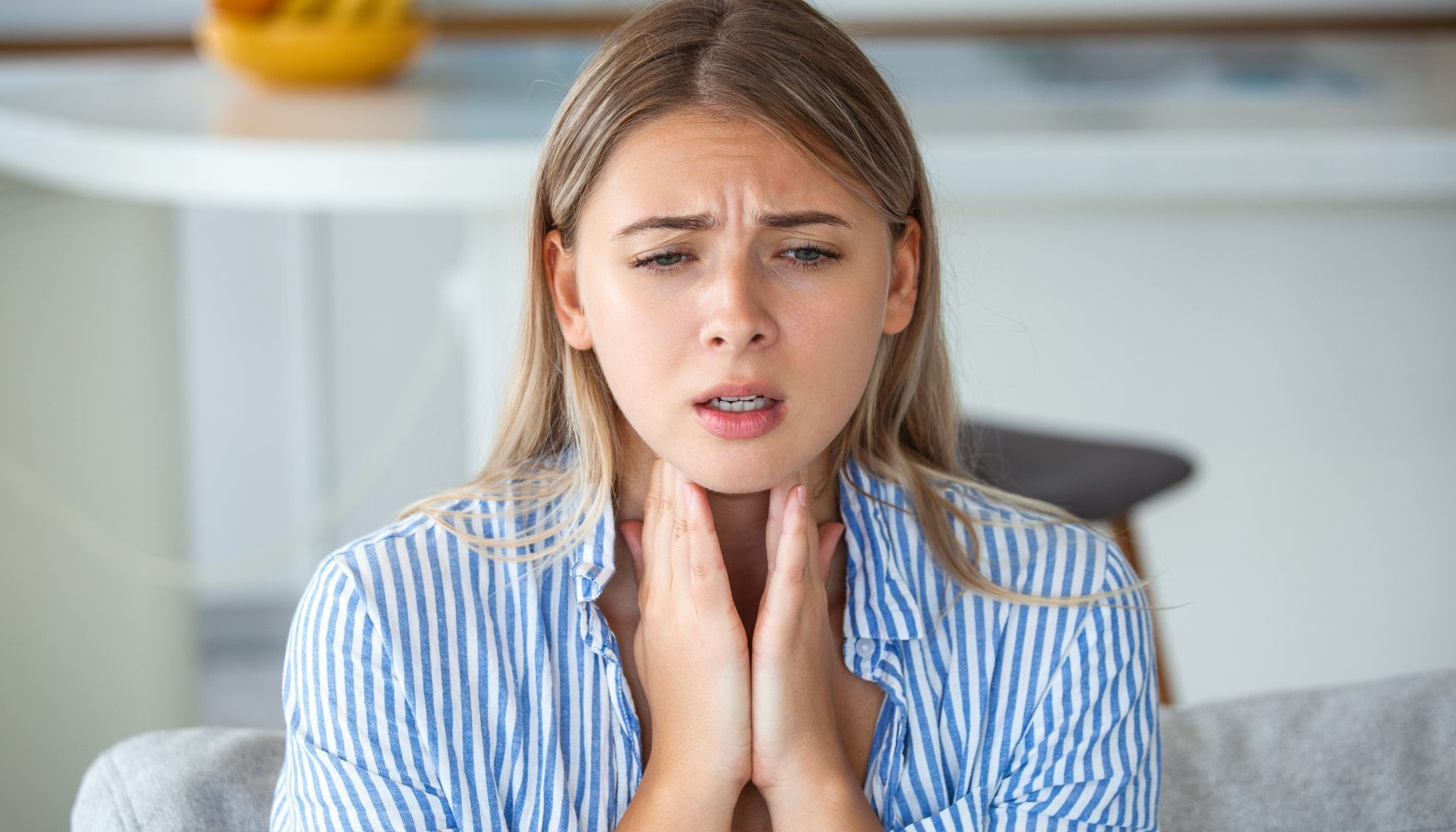Can Hypothyroidism Cause Headaches? Possible Links and Treatments
"The content below is not intended to be a substitute for professional medical advice, diagnosis, or treatment. Always seek the advice of your physician or other qualified health provider with any questions you may have regarding a medical condition."
You’ve been diagnosed with hypothyroidism and experience some of the common symptoms, like:
- Tiredness
- Weight gain
- Sensitivity to cold; and
- Brittle hair and nails
But you’re also experiencing headaches, and you’re wondering if your headaches could be caused by your hypothyroidism or if the two are unrelated.
In this guide, we’ll discuss why headaches and hypothyroidism may be related and give you some tips on how you can treat them both.
Table of Contents
Hypothyroidism and Headaches: Understanding the Basics
Hypothyroidism can be a complex condition to understand, with a variety of causes, symptoms, and treatment options.
And even though headaches are common — we’ve all experienced them at one time or another — there are many different kinds of headaches that can have an array of causes and effects.
It may be helpful to lay a foundational understanding of both headaches and hypothyroidism to better understand how the two may be linked.
Hypothyroidism Basics
The butterfly-shaped thyroid gland is located at the front of the neck, just below the larynx.
Though small, the thyroid gland is a mighty organ that plays a vital role in maintaining and regulating your body’s metabolism.
In order to do this, the thyroid gland receives some cues from the brain in connection with the pituitary gland. The hypothalamus secretes TRH (thyrotropin-releasing hormone), which prompts the pituitary gland to release TSH (thyroid-stimulating hormone).
TSH stimulates the thyroid gland to produce two hormones — triiodothyronine (T3) and thyroxine (T4) — which are key in the maintenance of metabolism and core body temperature as well as the production of amino acids and proteins.
Hypothyroidism, also known as an underactive thyroid, is a condition that occurs when your thyroid doesn’t produce enough T3 and T4.
When your thyroid doesn’t produce these hormones in sufficient amounts, it can slow down your metabolism, resulting in common symptoms like fatigue and weight gain.
Hypothyroidism is a common condition affecting nearly 5 out of 100 Americans ages 12 years and older, according to a report from the National Institutes of Health (NIH).
Since hypothyroidism is an inheritable condition, if someone in your family (or more than one family member) has it, you may also be at risk.
Headache Basics
Headaches are common, and since everyone has them from time to time, you might wonder why we’ve even included a section about the fundamentals of headaches.
Undoubtedly, none of us are strangers to the woes of the occasional headache, but headaches come in all shapes and sizes and have a variety of causes. Being familiar with some of these general points about headaches can help us understand a potential connection between them and hypothyroidism.
A headache is simply a pain felt in the head or face. Headache pain may be described as sharp, throbbing, dull, or constant pressure. Headaches can differ in:
- Type of pain
- Location
- Frequency; and
- Severity
Headache pain occurs when your brain receives signals from nerves that affect muscles and blood vessels.
Though there are many different types of headaches, they can be separated into two categories:
1. Primary headaches are caused by some type of abnormality or pain-sensitive features that are overactive. Examples of primary headaches are:
- Tension headaches
- Migraine headaches
- Cluster headaches
2. Secondary headaches are caused by an underlying medical condition and may include:
- Dehydration headaches
- Sinus headaches
- Headaches from medication overuse
Tension headaches are the most common type of headache, but migraines are the type of headache that is most often linked with hypothyroidism.
Whether you’re dealing with headaches or the effects of hypothyroidism, finding help and symptom relief may just be a call away. Let Dr. Sergi help you get on the road to wellness the HealthierU way — holistically and naturally.
Migraine Headaches and Hypothyroidism: Is There a Link?
Some impressive research has been done that may point to a potential link between migraines and hypothyroidism. Consider the following studies that may suggest that people who suffer from migraines may also have a higher risk of other medical disorders, including hypothyroidism.
- A study completed in 2013 showed that three percent of participants who had migraines also had hypothyroidism. An overwhelming majority of these participants (96%) were those who had discovered their hypothyroidism diagnosis after the onset of their migraines.
- Another 2016 study found a 41 percent greater risk of hypothyroidism in those with a history of migraines.
- A study including 100 participants in India in 2021 showed that 50 of those with migraines were also more likely to have a thyroid disorder, especially hypothyroidism.
To explain the possible link between migraines and hypothyroidism, it may help to look at the causes, risk factors, and symptoms of both, as well as how gender may affect both.
Symptoms
Migraine is a neurological disease with a host of symptoms, with a headache being one of the most pronounced symptoms.
Other symptoms of migraine headaches include:
- Throbbing pain on one side of the head
- Aura or ocular disturbances that occur before the migraine headache begins
- Sensitivity to light, sounds, smells, and physical activity
- Nausea or vomiting
- Dizziness or vertigo
They may get worse with light, physical activity, sounds, or smells and can last from several hours up to several days.
Hypothyroidism symptoms may be similar to other health conditions and may include:
- Fatigue
- Weight gain
- Muscle or joint pain
- Dry or thinning hair
- Brittle nails
- Sensitivity to cold temperatures
- Irregular periods in women
- Slow heart rate
- Fertility issues
- And more
To correctly diagnose hypothyroidism, it’s important to consult your doctor, who may order a thyroid panel to check thyroid hormone levels.
Causes
Migraines can be caused by a variety of factors, both genetic and environmental. Triggers can also cause migraine episodes and may include things like:
- Stress
- Bright lights
- Sounds
- Foods and certain ingredients
- Caffeine
- Alcohol
- Hormonal changes
- Disturbed sleep
Keeping a headache diary may be a good way to identify triggers.
Hypothyroidism is caused when the thyroid doesn’t produce enough thyroid hormone.
This low thyroid hormone production can be due to a variety of reasons:
- Inflammation of the thyroid called thyroiditis
- Hashimoto’s thyroiditis, a disorder where the immune system attacks the thyroid
- Removal of the thyroid by surgery
- Congenital hypothyroidism
- Radiation therapy as a treatment for thyroid cancer
- Certain medicines
Risk Factors
It’s interesting to note that some migraine and hypothyroidism risk factors may overlap.
Some migraine risk factors may include:
- Smoking
- High levels of stress
- Genetics
Hypothyroidism risk factors may include:
- Genetics
- Age (over 60 years old)
- Recent pregnancy
- Past thyroid treatments like radiation, medications, radioactive iodine, or thyroid surgery
Gender
According to a 2018 National Health Interview Survey, females are two times more likely to experience migraines than males.
Similarly, hypothyroidism is more common in women. According to a journal entry published by the National Library of Medicine, hypothyroidism is eight to nine times more common in women than men.
Hormonal factors may be the likely explanation for this difference.
The Bottom Line: Does Hypothyroidism Cause Headaches?
The answer to this question is a resounding “maybe.”
Though a 2019 review reports that a link between hypothyroidism and headaches may be likely, the reason for the potential link isn’t conclusively evident, and more research needs to be done.
It’s also possible that hypothyroidism and headaches may be indirectly linked — some symptoms of hypothyroidism may be factors that lead to headaches.
For example, fatigue that is experienced as a result of your hypothyroidism can indirectly lead to headaches. Additionally, factors like anxiety and depression can compound hypothyroidism symptoms, further contributing to headaches.
A Bidirectional Relationship: Are Headache Sufferers More Likely To Have Hypothyroidism?
The studies and research referenced already seem to make a strong case for hypothyroidism that may lead to headaches.
Interestingly enough, research has also been done that shows the link may be bidirectional, and those with frequent headaches may also be more likely to be diagnosed with hypothyroidism.
A study completed in 2016 showed that seven percent of study participants who had a history of headaches also were diagnosed later with new-onset hypothyroidism.
Just as with the idea that hypothyroidism can cause headaches, the bidirectional relationship between the two also requires more research to make some definitive conclusions.
With more comprehensive research, the future may provide some helpful information that may lead to better diagnoses and treatments for those who suffer from both ailments.
If natural treatment and nutritional healing are important to you, HealthierU is committed to creating lifestyle programs that include diet, whole food supplementation, and exercise.
Contact us today to learn how to find holistic treatment for both headaches and hypothyroidism.
Treatment Options for Hypothyroidism and Headaches
To properly and effectively treat hypothyroidism and headaches, having an accurate diagnosis would be vital. Therefore, consult with a healthcare professional when deciding on a treatment since there may be many complex factors to consider when deciding on treatment.
Consulting with your doctor is also important to make sure treatment for one condition won’t cause issues in dealing with the other. For example, you’ll want to be assured that a medication you may take for migraines doesn’t interact negatively with thyroid medications you may be taking.
It’s also important to be aware of possible side effects of medications and carefully take note of warnings that accompany prescription and over-the-counter medications.
For example, some pain relievers may cause drowsiness, can be potentially addictive, and may be the cause of accidental overdoses. Long-term use of certain medications can also lead to cardiovascular, kidney, or liver failure and respiratory complications.
Hypothyroidism Treatments
Hypothyroidism is most often treated using the medication levothyroxine (Synthroid, Levo-T, Tirosint, Levoxyl, and others).
It may take a few weeks for the medication to return hormone levels to normal and for patients to start feeling better. It’s also likely that treatment with levothyroxine will be lifelong.
Thyroid hormone levels may fluctuate, so hormone levels should be measured regularly, and dosage changes may be necessary.
According to this
Sage Journal article, some people dealing with both hypothyroidism and headaches found headache relief after starting levothyroxine. For others, headaches may be a side effect of taking this medication. If this occurs, you should get in contact with your medical professional.
Headache Treatments
Medication treatments for migraine headaches fall into two general categories:
- Pain-relieving medications
- Preventative medications
Common pain-relieving medications for migraines include:
- Over-the-counter medicines like ibuprofen and naproxen sodium
- Triptans (sumatriptan)
- Gepants (atogepant)
- Ditans (lasmiditan)
- Nose sprays (dihydroergotamine mesylate)
Preventive migraine treatments include:
- Neuromodulation devices (Cefaly)
- Monoclonal antibody infusions (Vyepti)
- Transcranial magnetic stimulation (TMS)
Other non-medicinal treatments to manage or treat symptoms include:
- Stress management techniques
- Getting adequate rest
- Drinking plenty of water
- Lying down in a dark, quiet room
- Holistic approaches (acupuncture, diet, vitamins, etc.)
Contact HealthierU for a Holistic and Nutrition-Based Approach To Treating Hypothyroidism and Headaches
With decades of experience, Dr. Sergi is dedicated to helping her patients get well and stay well — naturally.
Nutrition and lifestyle guidance are the factors she believes are necessary to address issues like headaches and hypothyroidism in a holistic way.
At HealthierU, we strive to use natural means, like whole food supplementation, lifestyle changes, nutrition guidance, and chiropractic care to identify and alleviate symptoms.
In the end, women’s health and wellness are our priorities. Contact us today to schedule your first appointment and start the journey to a healthier you.






